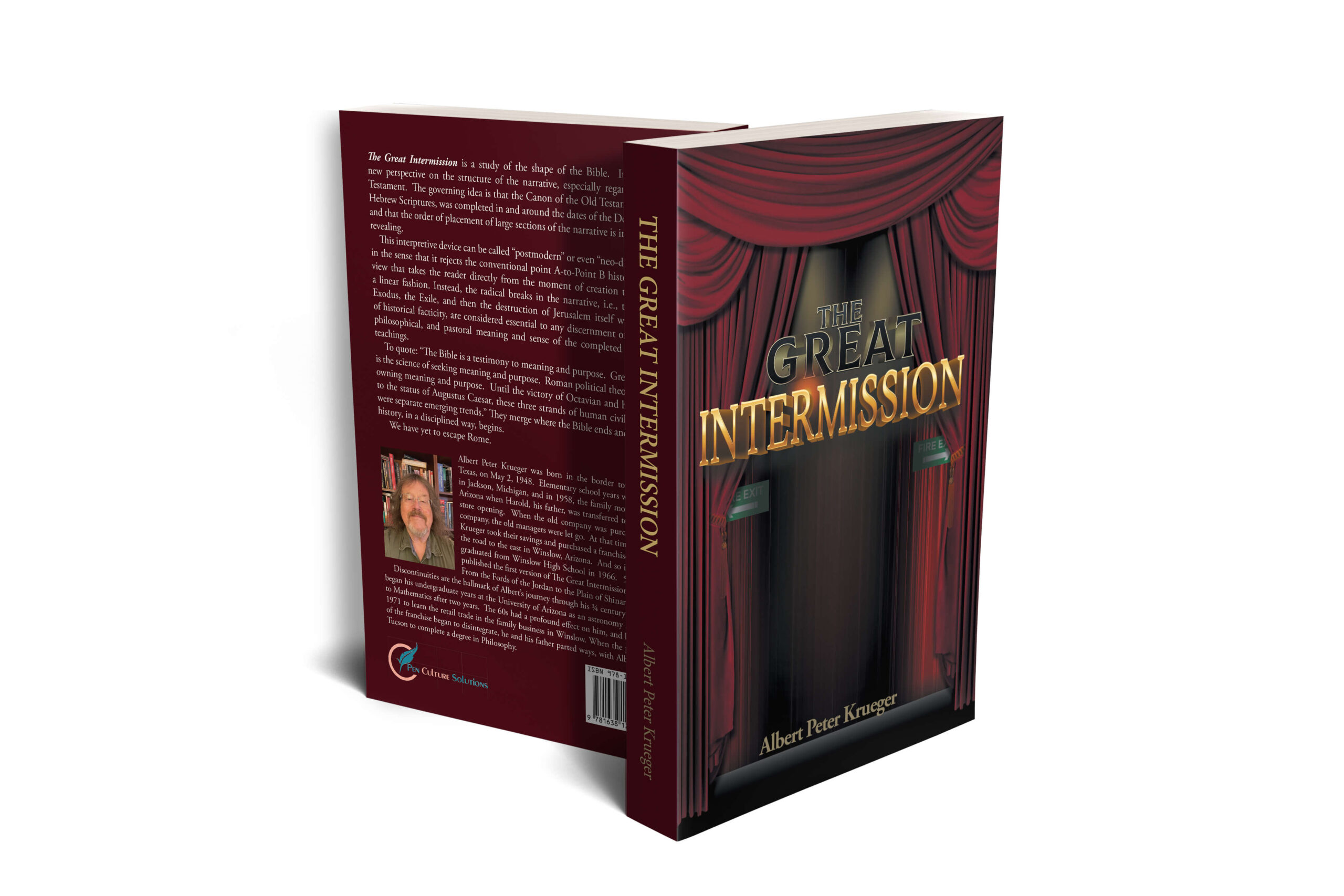Description
ABOUT THE AUTHOR
Albert Peter Krueger was born in the border town of McAllen Texas, on May 2, 1948. Elementary school years were experienced in Jackson, Michigan, and in 1958, the family moved to Flagstaff, Arizona when Harold, his father, was transferred to manage a new store opening. When the old company was purchased by a new company, the old managers were let go. At that time, Mr. and Mrs. Krueger took their savings and purchased a franchise 60 miles down the road to the east in Winslow, Arizona. And so it was the Albert graduated from Winslow High School in 1966. 50 years later he published the first version of The Great Intermission, under the title From the Fords of the Jordan to the Plain of Shinar. Discontinuities are the hallmark of Albert’s journey through his ¾ century pilgrimage. He began his undergraduate years at the University of Arizona as an astronomy major, changing to Mathematics after two years. The 60s had a profound effect on him, and he left college in 1971 to learn the retail trade in the family business in Winslow. When the parent company of the franchise began to disintegrate, he and his father parted ways, with Albert returning to Tucson to complete a degree in Philosophy.
Albert married his first wife, Katherine, in Tucson just before heading to seminary in Berkeley, California. They have two grown children, Sam and Anaiah, who are happily pursuing their chosen professions. The marriage ended in 2012. Albert received the Master of Divinity degree from the Church Divinity School of the Pacific, an Episcopal Church seminary, in 1980. He was ordained a priest in the Episcopal Church in Walla Walla, Washington on December 2, 1981. After serving congregations in Eastern Washington and in west central Oregon and the greater Portland area, Father Albert retired in 2013. He is now married to his lovely wife Diana and lives in Phoenix, Arizona. He and his wife attend Dream City Church in north Phoenix.









Reviews
There are no reviews yet.